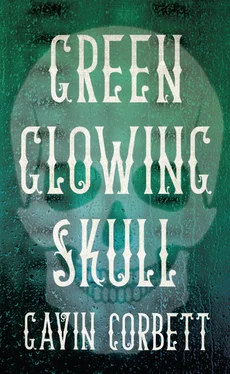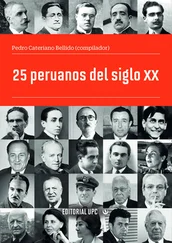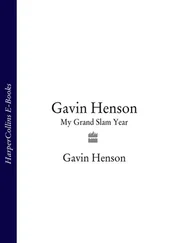‘My brothers tell me about it. They’ll regret it. If it’s possible that there’ll be a future in which they exist to regret it. They said to me, “Off you go now so, off you go to the Crack of Doom.” They don’t realise that I’ll carry through with my threat.’
‘You guys had a fight or something?’
‘A terrible fight. A terrible, terrible fight. They said, “Here you go now. Here are the spark plugs from the server. Go off now and throw them in the Crack of Doom.” Do you think that was terrible of me to have pushed them like that? But they were laughing as I left.’
‘See — I knew you were a fugitive.’ She poked him playfully in the ribs.
She left him off in a strange landscape that was as arid and cold as the moon. He came in from the road in case she came back. He dropped to his knees behind a collapsed termite mound. Soon after dawn it became very hot. He walked through the day. His eyebrows would be almost blond now. He began to miss the woman. No, he said, he was missing the foam that she offered. He imagined with self-tormenting pleasure the pop in his mouth of bubbles, the most perfect things that there were. He looked in his bag for food, though he knew there was no food there. A giant moth had got in. He quickly zipped his bag closed. It was to be hoped that the heat would kill it, and then he could eat it later.
He had his moth that night and the effort of chewing made him even more desperately thirsty than he was. He needed now to dig for water. With a sweep of his foot he cleared some of the loose stones off a patch of desert. As a result of his thirst, and of the cold, he could not summon even a drop of urine to soften the ground. He got down on his belly and started to lick it instead. This worsened everything. The effort would kill him before he got to the water, but he was going to die anyway, he said. Ignorance kept him going. He had some idea not his own that he had come out here with his brothers before, and that they had dug up and then filled in again the soil beneath this very patch of ground. In his delirium he thought repeatedly of bubbles, the beauty of them, and that they were a whipped soul.
Lo, he had been at this spot before. At least that’s what the Indian told him. The Indian helped him out of the hole, and he hauled out the Indian. They flicked the clay and dust off themselves. The Indian wore only a leather loin covering, and his skin was as brown as the desert, which was to say (which Jeremiah didn’t), not very. With ceremonial emphasis Jeremiah slung his bag into the hole.
‘I made you,’ he said.
‘And all of my works,’ said the Indian. ‘Now come with me.’
Their little caravan travelled through the night. As the sun rose in the sky so the Indian’s skin became darker. He led Jeremiah to a land of greater variety. They followed a dry river bed, smooth and scaled, until it became filled with pebbles, and continued along its course into the higher ground. For water they drank from a fistful of clay that the Indian had taken at the last minute from the hole. They rested when they reached the top of the height. The Indian wrung the last drop of water into Jeremiah’s mouth and then moulded the clay with the palms of his hands into a perfect shiny ball. Standing up again he beckoned Jeremiah to the edge of a cliff. Hundreds of metres down on the floor of the plain was a vast sward of rich lime green. The Indian allowed Jeremiah to observe it for some minutes.
‘What am I looking at?’ said Jeremiah.
‘A multi-leaved clover,’ replied the Indian. ‘You must pluck the clover from the desert and hold it up to man and woman. What it means is outrageous and everlasting luck, and what it stands for is the Multinity. To God, the Son and the Holy Spirit, we must now add every man and woman.’
‘But how am I meant to hold something so large?’
‘In all beauty there is some strangeness of proportion.’
Jeremiah reached out his hand, holding the clover in the C of his finger and thumb, but felt only the breeze.
‘I said proportion, not perspective,’ said the Indian.
Jeremiah made his way down the cliff face through a vertical fault. Dead skunks littered the route along the horizontal. Ahead was a thin strip of green and, seeming to hover above it, an iridescent pall. Closer to the clover he heard the pulsing hissing chorus of a million snakes. A car whizzed by in front of him. He saw a sign that said:
WELCOME TO PALM SPRINGS!
A DIFFERENT GOLF COURSE FOR EVERY DAY OF THE YEAR
From the open top of a converted Routemaster double-decker bus he saw that the golf courses connected up into one enormous piece of landscaping. He mashed around his mouth the salty paste of disappointment, and imagined the sweet taste of water in the hissing, life-giving sprinklers.
‘There’s nothing to see in Palm Springs,’ said the Mexican in the seat beside him. He wore small pink binoculars on a string around his neck. ‘But you might find something you like in this.’ He handed Jeremiah a leaflet. The front of it read:
THINGS TO SEE IN PALM SPRINGS
Jeremiah slid down the banister rail of the bus.
‘Can you take me to the Clover Bowl, please?’ he said to the driver.
The driver dropped him off three-quarters of a kilometre from the Clover Bowl and gave him good instructions on how to get there. On arrival he did indeed find a bowl, an upturned one, though it could also have been a shield resting on its concave side or an empty turtle shell. The bowl reminded him too of the monument at Newgrange and, while he was thinking of that cruel trick played on antiquarians, he thought also of an upturned coracle. Atop, supported by scaffolding, was an idealised shee, beside his crock of gold. By the front door a child was having a disco in a coin-operated Spanish galleon with flashing bulbs. He walked the perimeter of the bowl, through a car park and then a backlot strewn with litter, dead palm fronds and full-to-bursting dumpsters, to see if the rear of the building made a clover shape, but it was elliptical all the way around. He supposed that a multi-leaved clover would, in fact, be elliptical.
The inside of the Clover Bowl was blessedly cool, owing to an absence of natural light. The walls were made of rough-hewn granite held together with a tar-like pointing. Where the walls were not like this they were panelled, mirrored, plastered, or obscured by partition walls that sectioned off rooms. One of these rooms had a sign beside the door that said:
HAVE YOUR PARTY HERE
He peeped in the door and saw a room that was very well fenestrated and full of natural light. A man had come to his shoulder and he asked the man:
‘Do you ever have foam parties here?’
One half of the Clover Bowl was taken up with bowling lanes and a range of clattering traps. Above the clattering traps ran a facia that depicted a scene of green hills among which jigged and jiggled many more idealised shee.
‘A-ah,’ said the man at his shoulder. ‘You can’t go down there without the right shoes.’
Jeremiah minced to his designated seat in the right shoes. They looked tiny and shiny on his feet, and felt tiny too. The sounds of the Clover Bowl resembled nothing so much as the drippings inside of sewer pipes greatly amplified with the use of software. Other than that, the William Tell Overture blared over the speakers. Beside him was a rack of bowling balls. They connected one with the next with a pleasing clonk. He tried all the balls for size and found that his thumb, which was as thick as a cucumber as a result of callousing from hard endless work, would only fit in the thumb-hole of one of them. This ball was brown and, funnily enough, but maybe not so, had a clover on it.
His thumb felt as tight in the hole as his feet did in the shoes. He flung the ball into the lane almost glad to be rid of it, and stumbling as he did. It thumped on to the greased wood, screwed immediately into the trough, and rolled slowly towards and then into the trap. The gang of undisturbed white skittles at the end of the lane seemed to laugh at him.
Читать дальше
Конец ознакомительного отрывка
Купить книгу












